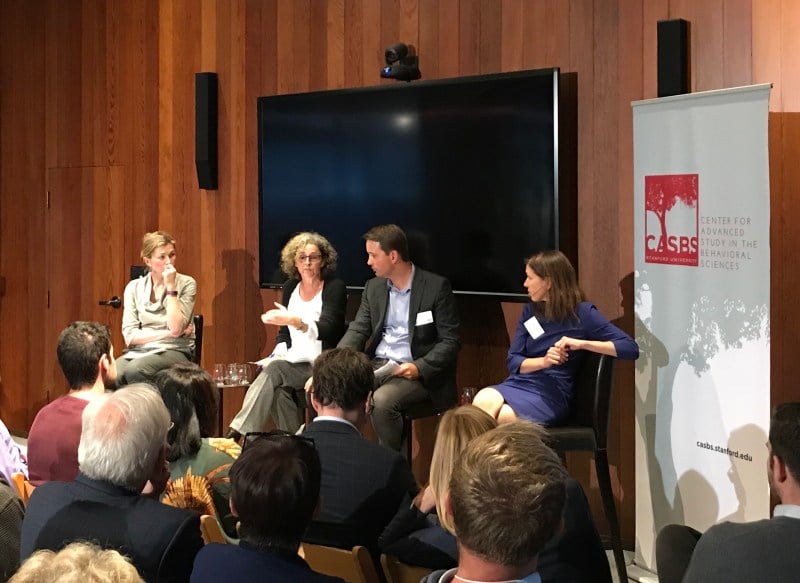On Tuesday, the Center for Advanced Study in the Behavioral Sciences (CASBS) hosted “Populist Challenges to Democracy,” its first of three public symposia. Panelists discussed reasons for the growth of populism around the world. In particular, they emphasized the importance of institutional accountability.
Co-sponsored by the Global Populisms Project, a program of the Freeman Spogli Institute for International Studies (FSI) and The Europe Center, the event featured a panel discussion between Universitat Autônoma de Barcelona political science professor Eva Anduiza, Harvard associate sociology professor Bart Bonikowski and Oxford associate professor of politics and public policy Maya Tudor.
Moderated by Global Populism Project Director Anna Grzymala-Busse, the discussion focused on populism’s threats to democratic institutions, as well as possible explanations for the rise in populism around the world.
“The politics of resentment played a role,” Bonikowski said. “People in dire situations respond to the vilification of various scapegoats. It could be minorities, terrorists or elites themselves — you could blame the Washington elites for your own tough situations.”
Tudor argued that the shift in the bases of political parties and the challenge to define party identity could also be factors in the growth of populism.
“Beyond structural explanations, there is also an institutional explanation,” Tudor said. “Parties themselves have seen an internal decay.”
Ultimately, the panel emphasized the importance of institutional accountability, calling for both media and industry elites to contribute more to the protection of democratic institutions.
Participants said they found the symposium to be informative and thought-provoking.
“The event was very interesting in the sense that there were different points of view,” said Pablo Tortolero M.A. ’20. “Each person had key examples from different parts of the world such as India and Europe and provided well-rounded definitions.”
Olivia Seideman M.A. ‘20 agreed that the symposium’s global perspective was especially valuable.
“I think especially in an increasingly globalized society we should be reaching across borders rather than focusing on our own identities,” she said. “I’m coming out thinking about how to reconcile the need for global collaboration and national identity.”
Contact Daniel Yang at danieljy ‘at’ stanford.edu.
